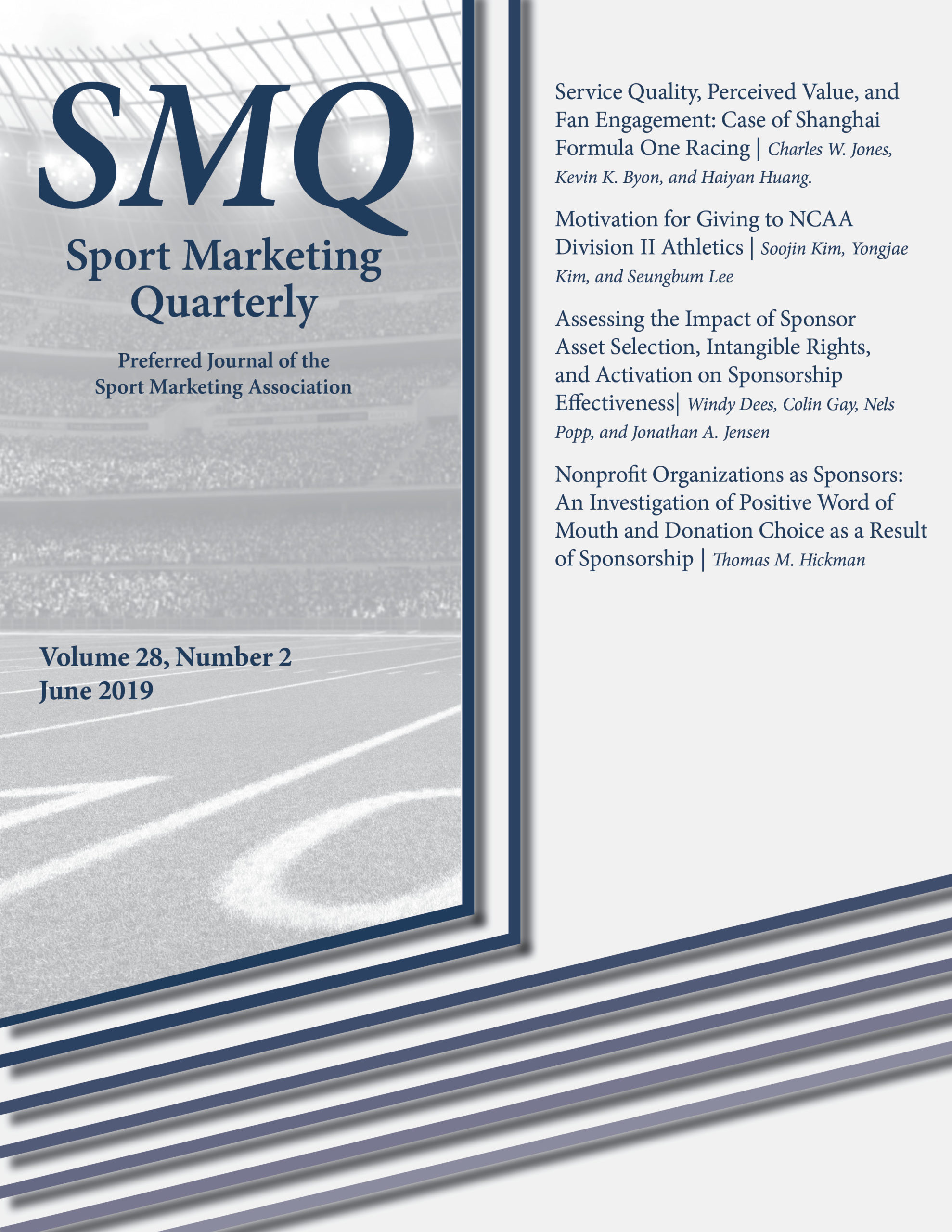Sports Marketing Quarterly
Issue 28:1 – March, 2019
Issue 28:1 – March, 2019

Ryan W. Kota, Charles Reid, Jeffrey D. James, and Amy Chan Hyung Kim
Fantasy sport has rapidly developed into a multi-billion dollar industry in recent years, with daily fantasy sport (DFS) responsible for $18.9 billion in annual fantasy sport consumption revenue (Fantasy Sports Trade Association, 2017). Efforts to examine the drivers of DFS-specific participation remain scarce, with scholars having reported on the motives of traditional fantasy sport (TFS) consumers and hybrid consumers (i.e., those who consume both TFS and DFS) (Billings, Ruihley, & Yang, 2016; Ruihley, Billings, & Rae, 2014). The authors conducted three studies to develop the Daily Fantasy Sport Motives Scale (DFSMS). Development of the DFSMS allows for a more thorough investigation into the motives and underlying drivers of DFS participation. Specifically, the authors discuss the unique nature of the DFSMS, provide suggestions for marketers and academics, and outline future research opportunities.
Mark Jaewon Chang, Daniel P. Connaughton, Ilyoung Ju, Jihye Kim, and Joon-Ho Kang
The aim of this study was to examine the effect of self-continuity messages on fans’ pride and word-of-mouth recommendations (WOM), and whether messages regarding sport team performance and corporate social responsibility (CSR) can enhance the effect of self-continuity messages. The results indicated that self-continuity can enhance fans’ pride, and WOM accordingly, and messages evoking self-continuity and CSR could enhance fans’ pride and WOM. Additionally, the results also indicated that CSR messages can enhance the impact of self-continuity on fans’ pride when fans heard that their favorite team’s performance is poor. Theoretical and practical implications are discussed.
Jeffrey D. James, Elizabeth B. Delia, and Daniel L. L. Wann
Scholars have studied sport team identification for decades, advancing our understanding of the influence of a psychological connection to a sport team on attitudinal and behavioral outcomes. Despite the contribution of the study of team identification to the sport fan psychology and sport consumer behavior literatures, a critical issue is apparent. A review of the methods used by scholars to assess and study team identification uncovered a misinterpretation of participant responses to team identification scale items. In previous re-search, not-identified individuals have been examined as individuals with low team identification. We illustrate the problem with scales used to measure team identification, then propose one approach to resolving the problem with the most frequently used scale, the Sport Spectator Identification Scale. We report on the testing of a modified scale, the Sport Spectator Identification Scale-Revised (SSIS-R), to detect not-identified individuals. We conclude with suggestions moving forward the study of team identification in general.
Chulhwan Choi, T. Christopher Greenwell, Mary A. Hums, and Marion E. Hambrick
Screen golf, a virtual sport utilizing interactive simulators, has seen enormous growth in the Republic of Korea. This virtual sport removes some of the constraints consumers experience, keeping them away from playing golf at an outdoor course (e.g., cost and weather). This study explored how leisure constraints differ between screen golf and outdoor golf and identified differences in leisure constraints among diverse types of consumers. Based on a sample of 389 South Korean consumers, results indicated significant differences in leisure constraints between outdoor and virtual golf in cost, weather, time, and skill/confidence. In addition, constraints differed according to respondents’ personal golf experience, household income, and mastery level.